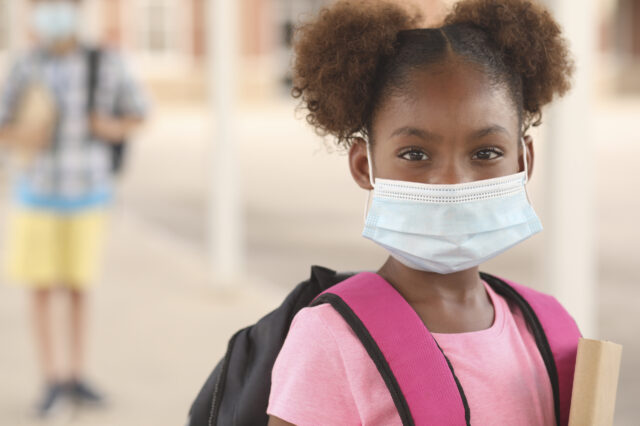Getting Back-to-School Safely
As you start planning for your child’s upcoming school year, answering questions like these can help ensure your child’s educational and health needs are met.

This year, back-to-school planning has been incredibly complex because of the ongoing coronavirus pandemic. For some, this time is filled with excitement as kids prepare to see their friends, teachers, principals, librarians, bus drivers and school staff in person for the first time in months. For others, anxiety and fear are overshadowing the typical excitement and nervousness.
Each family is preparing their own unique back-to-school plan for the fall. As you start planning for your child’s upcoming school year, answering questions like these can help ensure your child’s educational and health needs are met.
What is your child’s learning style?
Some children excel with using technology and online learning programs, while others require in-person instruction, demonstrations, hands-on activities and reminders to complete their assignments. Your child’s ability to learn in different ways depends on age, grade level, attention span and ability to use computer programs. Take these factors into consideration when deciding whether online classes or brick-and-mortar school would work best.
Who is best suited to teach your child?
With the right resources and a desire to educate, teachers, grandparents, parents, nannies and family friends can all help your child learn. However, teaching is a large undertaking, and it is important to take a realistic look at the time, energy, money and discipline required to help your child successfully learn. It is also important to consider the relationship your child has with the considered “teacher” and determine if this relationship will be affected negatively or positively if the roles are changed to a teacher-learner relationship instead of just friends or family members.
Other than learning, what can school offer your child?
Outside of academic enhancement, school provides many other benefits that are sometimes overlooked. School is a place where children are able to develop their personality and identity outside of their home. It allows children to meet other children and adults that may be different than themselves. It provides a safe environment to try new things like sports, foods, science experiments, languages and more. It provides parents and caregivers a safe environment for their children while they are working during the day. It allows for the development of social skills and relationships with other children and adults that may lead to lifelong friendships or mentor relationships. It is a source of food, as many children eat breakfast, lunch and snacks at school. It provides a safe and stable environment with an expected routine that many children find reassuring in times of change or instability.
Some of these benefits may still exist through online school, sports teams, church groups or social clubs; however, some children may not have access to these outside of their physical school building.
What safety measures are needed to ensure your child is healthy and happy in school?
Schools are quickly developing policies and plans to keep children safe at school. Some families will choose to have their children attend in-person classes while others opt for virtual learning. Many schools will incorporate temperature checks, mask requirements, social distancing and desk barriers to limit the risk of faculty and students getting sick.
You know your child’s individual needs and medical conditions best. Talking to your child about the ways they can protect themselves, including wearing face-coverings, washing their hands or using hand sanitizer, and following school guidelines can help them stay safe.
It is important to discuss any concerns regarding your child’s health with your child’s pediatrician during their annual wellness check-up. Keep your child up to date on their vaccines to limit exposure to other illnesses, like the flu, measles or whooping cough.
How is your child feeling about the upcoming school year?
Both children and adults are feeling pressure and uncertainty due to COVID-19. It is important to have honest conversations with your child about school and their feelings. Some children are very excited and others are very anxious. There is no right or wrong way to feel. Please talk with your child about your back-to-school plan and involve them in the planning process. Help your child understand the reasons why certain things are being done differently this year by answering questions and discussing fears and desires.
You don’t have to face this stressful time alone. There are many resources available to help you navigate the upcoming school year and to help your child excel this year. If you have questions or concerns, please visit our Facebook Page for resources or contact your primary care provider.
UF Health Family Medicine and Pediatrics – Baymeadows offers care for every stage of life from infancy to adulthood. Call 904-633-0800 to schedule a Virtual Visit or on-site appointment.